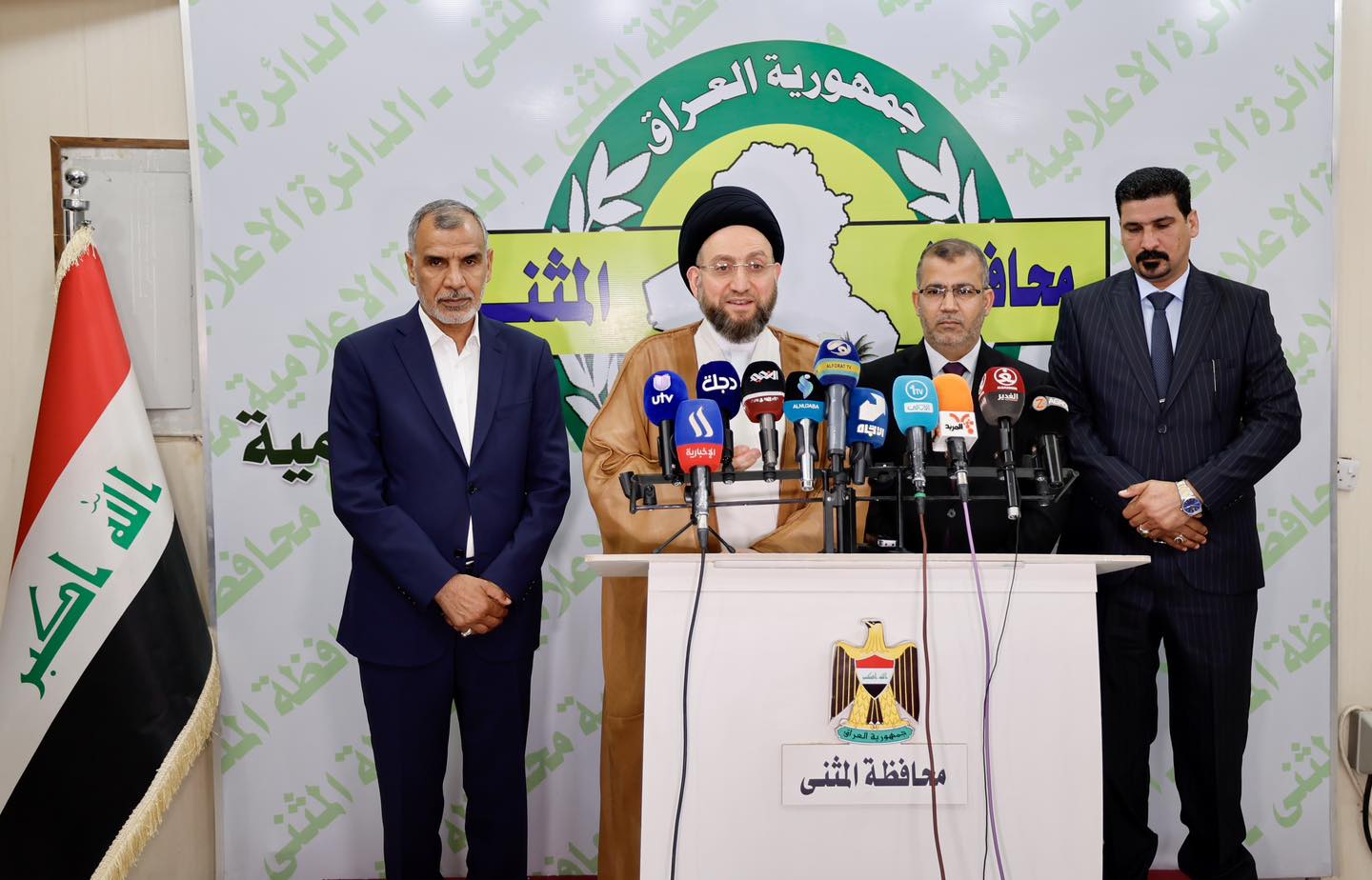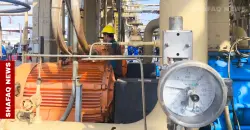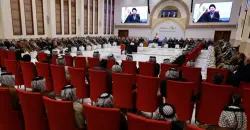Al-Hakim warns against reliance on oil

Shafaq News/ Ammar al-Hakim, the leader of al-Hekmah movement, on Friday said that Iraq should diversify its economy away from dependence on volatile oil prices and seek a smooth transition of powers after the reinstatement of governorate councils.
The Shiite clergyman made those remarks during a press conference in the southern governorate of al-Muthanna earlier today. The conference was held in the presence of the governor and members of the governorate council.
Transition to local governance
Hakim pointed at what he called "shortcomings" in empowering local governments. "The transfer of power lacked proper instructions, training, and preparation," he said, criticizing those who "deliberately" hindered the process.
On December 18, 2023, Iraq conducted its first local elections in a decade. Nearly 6,000 candidates from 134 lists and 39 alliances competed, along with around 60 independent candidates. These elections covered fifteen out of the eighteen governorates, as the elections did not include the three autonomous governorates located within the Kurdistan Region of Iraq.
He argued for a fairer comparison between young local administrations and established ministries with over a century of experience, calling for "more cooperation with local authorities to restore their rightful powers and ensure effective governance."
Acknowledging the link between providing services and public trust, al-Hakim stressed "the importance of strategic planning and prioritizing projects based on sound timelines and budgets" and advocated for "awarding contracts to companies with good reputation to deliver high-quality projects at reasonable costs."
The Iraqi constitution has granted these councils significant administrative and financial powers. The councils in Iraq serve as the legislative and oversight authority for each governorate. Each council has the authority to issue local legislation and approve the local budget in accordance with federal laws.
Although governorate councils are an extremely important facet of Iraqi politics, authorities have consistently delayed or canceled elections. The last local elections held in Iraq were in May 2013; the 2017 governorate elections–along with national parliamentary elections–were postponed until the following year, only for the provincial elections to be delayed once again. In 2019, the work of the governorate councils was suspended in response to the demands of the "Tishreen" protest movement, which viewed them as emblematic of the country's widespread corruption. After years of setbacks, Iraq's Independent High Electoral Commission (IHEC) set the final date for the elections for December 18.
Alternatives to oil reliance
"We should explore alternative revenue streams to bolster the Iraqi economy. We cannot mortgage our future to fluctuating oil revenues," said al-Hakim, criticizing Iraq's reliance on oil products to support the treasury.
The Iraqi government relies on oil for more than 90 percent of its revenue. While non-oil gross domestic product (GDP) should grow in 2024, the overall economic outlook is tenuous.
In recent years, oil wealth led to growth, but the International Monetary Fund has predicted that growth would end due to OPEC-mandated production cuts and the shutdown of a pipeline between Iraq and Turkiye.
Drugs
"The authorities must differentiate between dealers and addicts," the Shiite cleric stated. "Addicts are patients requiring treatment," he explained, while dealers are "criminals deserving punishment."
Between 2019 and 2022, over 43,000 individuals have been apprehended on drug-related charges. In December 2022, the Supreme Judicial Council announced that approximately six tons of drugs stored in the Forensic Medicine Department were destroyed.
Some in Iraq have directly linked the high unemployment rate among youth to increased addiction. For instance, the Basra police department said that 97% of drug users arrested in 2018 were unemployed, and two-thirds were 25 or younger; the Basra appellate court reported that 90% of those arrested for drug use around the same time were unemployed. Unfortunately, there are no reliable official numbers, but statements by officials indicate that the drug problem is very acute in some cities; for example, the governor of Diwaniyah stated that the rate of drug abuse by youth had reached 40%, according to some estimates by non-governmental organizations.
Compounding the issue are the shortcomings of Iraq's legal framework. While the 2017 Narcotics and Psychotropic Substances Act prescribes the death penalty for certain drug offenses, its implementation has been inconsistent.
Human rights organizations raised concerns about the potential for arbitrary application of the law, particularly in a country with a fragile human rights record. They argue that capital punishment is not an effective deterrent and fails to address the root causes of drug abuse, such as poverty, unemployment, and lack of access to treatment.
Iraq's drug problem has reached critical levels. According to the United Nations Office on Drugs and Crime (UNODC), the country has become a major transit route for illegal drugs, particularly Captagon, a stimulant amphetamine. This lucrative trade fuels organized crime and terrorist networks, posing a significant threat to regional stability.
In a 2021 report, the UNODC highlighted the alarming rise of crystal meth in Iraq, warning that it is now manufactured domestically in southern border governorates.
In December 2023, Iraqi Prime Minister Mohammad Shia al-Sudani made a controversial statement urging the president of the country to ratify all death sentences for convicted drug traffickers.
He said this is necessary to "implement the law and be a deterrent to anyone who dares to threaten the security of the country and its people."





